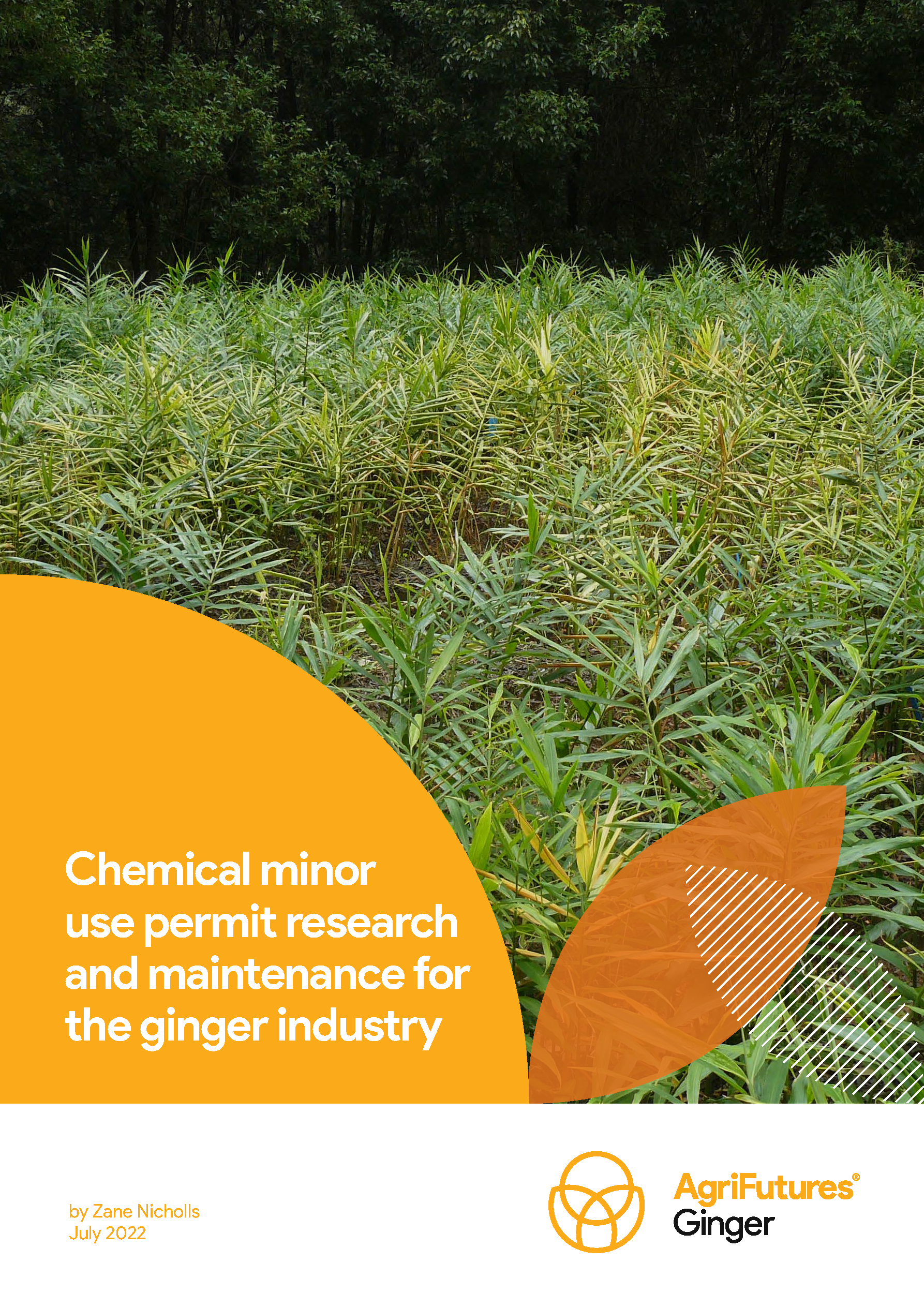The Australian ginger industry can be considered too small and not profitable enough for chemical companies to actively engage with the industry and undertake the research required to have a product registered for use in ginger. A chemical registration would mean the product label includes ginger and the specific application method. As a result, the chemicals required by the industry for pest and disease control are not registered for use.
To obtain a permit to use a specific chemical for pest and disease control in ginger production systems, the industry must apply to the Australian Pesticides and Veterinary Medicines Authority (APVMA) to obtain a minor use permit. This project, ‘Chemical minor use permit research and maintenance for the ginger industry’, maintained the currency of 13 minor use permits, two emergency use permits and 32 associated chemical and biological chemical pest and disease controls on behalf of the Australian ginger industry.
The timely maintenance of minor use permits issued by the APVMA for products used by industry protects market access for the estimated 50 commercial ginger producers. The industry has been proactive in improving quality assurance (QA) standards and has developed a code of conduct on best practice production and harvest methods. Using an unregistered product is a breach of this code of conduct and results in serious non-conformances during Freshcare certification audits. Further, using unregistered products contravenes minimum state and federal product quality assurance standards that enable market access.
A key activity that highlighted the importance of the minor use program was the emergence of fall armyworm (FAW) in Queensland as a potentially serious pest in ginger. The project team was proactive in securing emergency use permits to provide initial control options against most FAW larval stages, and further minor use permits to assist with FAW moth eradication. These permits support the industry’s FAW monitoring and control program. The project team developed the initial FAW monitoring and control program in line with permitted minor use and emergency use controls with help from the Queensland Department of Agriculture and Fisheries’ FAW team. As a result, the Australian ginger industry has seven FAW chemical and biological controls, and pest monitoring options at its disposal.





